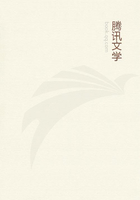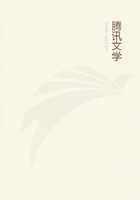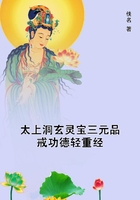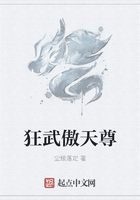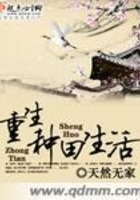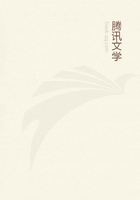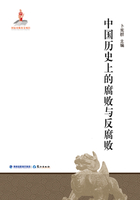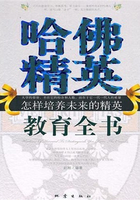But the stranger made his own beginning. As the priest came from the church, the rebellious young figure was waiting. "Your organist tells me," he said, impetuously, "that it is you who--"
"May I ask with whom I have the great pleasure of speaking?" said the Padre, putting formality to the front and his pleasure out of sight.
The stranger's face reddened beneath its sun-beaten bronze, and he became aware of the Padre's pale features, molded by refinement and the world.
"I beg your lenience," said he, with a graceful and confident utterance, as of equal to equal. "My name is Gaston Villere, and it was time I should be reminded of my manners."
The Padre's hand waved a polite negative.
"Indeed, yes, Padre. But your music has amazed me. If you carried such associations as--Ah! the days and the nights!"--he broke off. "To come down a California mountain and find Paris at the bottom! The Huguenots, Rossini, Herold--I was waiting for Il Trovatore."
"Is that something new?" inquired the Padre, eagerly.
The young man gave an exclamation. "The whole world is ringing with it!" he cried.
"But Santa YsabeI del Mar is a long way from the whole world," murmured Padre Ignacio.
"Indeed, it would not appear to be so," returned young Gaston. "I think the Comedie Francaise must be round the corner."
A thrill went through the priest at the theater's name. "And have you been long in America?" he asked.
"Why, always--except two years of foreign travel after college."
"An American!" exclaimed the surprised Padre, with perhaps a tone of disappointment in his voice. "But no Americans who are yet come this way have been--have been"--he veiled the too-blunt expression of his thought--"have been familiar with The Huguenots," he finished, making a slight bow.
Villere took his under-meaning. "I come from New Orleans," he returned, "and in New Orleans there live many of us who can recognize a--who can recognize good music wherever we hear it." And he made a slight bow in his turn.
The Padre laughed outright with pleasure and laid his hand upon the young man's arm. "You have no intention of going away to-morrow, I trust?"
"With your leave," answered Gaston, "I will have such an intention no longer."
It was with the air and gait of mutual understanding that the two now walked on together toward the Padre's door. The guest was twenty-five, the host sixty.
"And have you been in America long?" inquired Gaston.
"Twenty years."
"And at Santa Ysabel how long?"
"Twenty years."
"I should have thought," said Gaston, looking lightly at the desert and unpeopIed mountains, "that now and again you might have wished to travel."
"Were I your age," murmured Padre Ignacio, "it might be so."
The evening had now ripened to the long after-glow of sunset. The sea was the purple of grapes, and wine-colored hues flowed among the high shoulders of the mountains.
"I have seen a sight like this," said Gaston, "between Granada and Malaga."
"So you know Spain!" said the Padre.
Often he had thought of this resemblance, but never till now met any one to share his thought. The courtly proprietor of San Fernando and the other patriarchal rancheros with whom he occasionally exchanged visits across the wilderness knew hospitality and inherited gentle manners, sending to Europe for silks and laces to give their daughters; but their eyes had not looked upon Granada, and their ears had never listened to William Tell.
"It is quite singular," pursued Gaston, "how one nook in the world will suddenly remind you of another nook that may be thousands of miles away.
One morning, behind the Quai Voltaire, an old, yellow house with rusty balconies made me almost homesick for New Orleans."
"The Quai Voltaire!" said the Padre.
"I heard Rachel in Valerie that night," the young man went on. "Did you know that she could sing, too. She sang several verses by an astonishing little Jew violon-cellist that is come up over there."
The Padre gazed down at his blithe guest. "To see somebody, somebody, once again, is very pleasant to a hermit!"
"It cannot be more pleasant than arriving at an oasis," returned Gaston.
They had delayed on the threshold to look at the beauty of the evening, and now the priest watched his parishioners come and go. "How can one make companions--" he began; then, checking himself, he said: "Their souls are as sacred and immortal as mine, and God helps me to help them.
But in this world it is not immortal souls that we choose for companions; it is kindred tastes, intelligences, and--and so I and my books are growing old together, you see," he added, more lightly. "You will find my volumes as behind the times as myself."
He had fallen into talk more intimate than he wished; and while the guest was uttering something polite about the nobility of missionary work, he placed him in an easy-chair and sought aguardiente for his immediate refreshment. Since the year's beginning there had been no guest for him to bring into his rooms, or to sit beside him in the high seats at table, set apart for the gente fina.
Such another library was not then in California; and though Gaston Villere, in leaving Harvard College, had shut Horace and Sophocles for ever at the earliest instant possible under academic requirements, he knew the Greek and Latin names that he now saw as well as he knew those of Shakspere, Dante, Moliere, and Cervantes. These were here also; but it could not be precisely said of them, either, that they made a part of the young man's daily reading. As he surveyed the Padre's august shelves, it was with a touch of the histrionic Southern gravity which his Northern education had not wholly schooled out of him that he said:
"I fear I am no scholar, sir. But I know what writers every gentleman ought to respect."
The polished Padre bowed gravely to this compliment.

